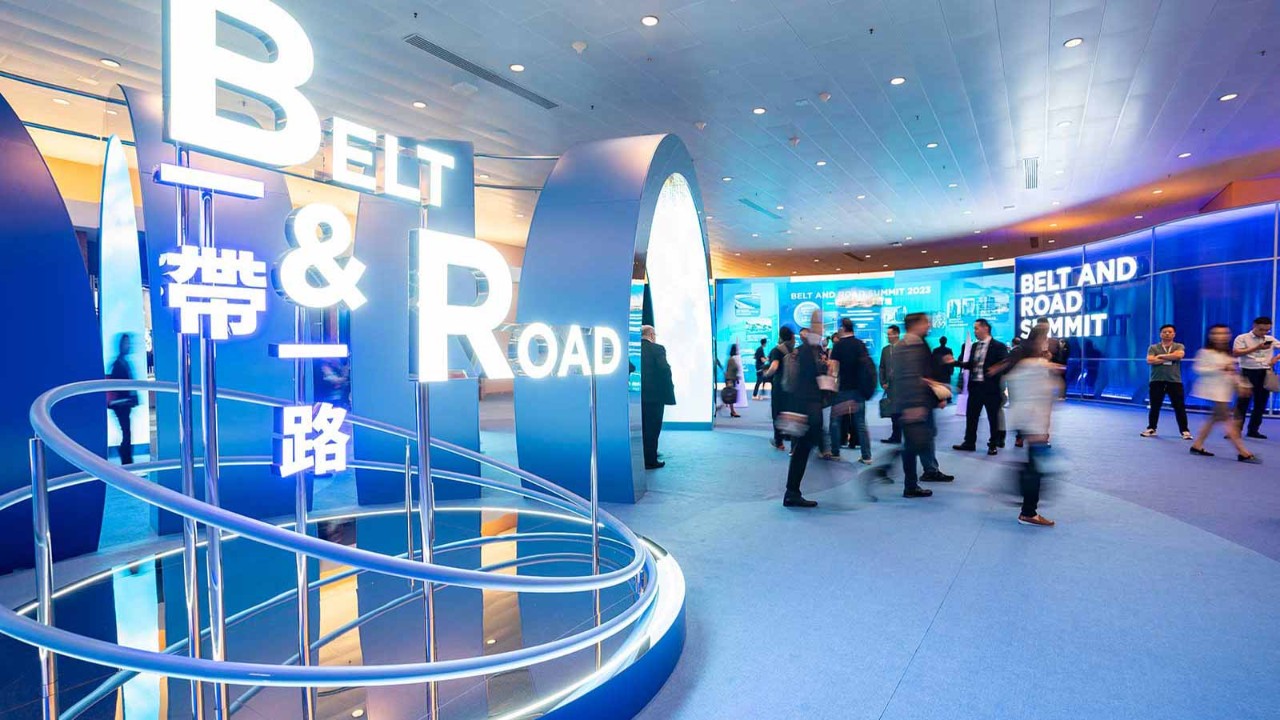
As the Belt and Road Initiative (BRI) to link dozens of economies in Asia, Europe, Africa and the Middle East in a colossal intercontinental trade network marks its 10th anniversary, Hong Kong is seeking to secure a larger slice of the BRI pie by leveraging the power of connectivity and professional services.
Initiated by China in 2013 to recreate the ancient Silk Road trade routes, the ambitious plan has undoubtedly encountered obstacles. However, to date, close to 150 countries, accounting for almost 75% of the world’s population and more than half of global GDP, have signed BRI cooperation agreements.

BRI projects have created opportunities that professional services should seize
BRI billions
At the 10th anniversary BRI summit held in Hong Kong in late September, participants heard that BRI-related infrastructure mega projects such as ports, highways, hydroelectric dams and railways – developed as a way to boost trade ties – have created new economic and business opportunities that Hong Kong’s professional services should seize. Preliminary data shows that mainland China’s engagement through financial investments and contractual cooperation for the first half of 2023 across BRI participating countries reached about US$43bn, according to the Green Finance & Development Center’s China BRI Investment Report 2023 H1. Speakers at the summit were enthusiastic about what increased involvement in BRI projects could hold for Hong Kong.
While Hong Kong has been an active BRI participant since its early days, its government is looking for a way to speed up its sluggish economic recovery. It has therefore focused on strengthening the Special Administrative Region’s traditional role as an intermediary between mainland China and the rest of the world. Embracing the term ‘super connector’, several summit speakers pointed out how Hong Kong’s alignment with global financial reporting and governance standards puts its accounting sector in a prime position to provide accounting, audit, risk assessment and tax advice services to regional and international enterprises involved in BRI projects.
In providing engineering, architectural, financial and legal services to BRI projects, several speakers stressed that, as a conduit linking Asia with mainland China and the rest of the world, Hong Kong is in a strong position to leverage its advantages. Paul Chan, Hong Kong’s financial secretary, even went so far as to claim that ‘Hong Kong is the world’s one-stop Belt and Road centre for professional services’.
Asia’s premier green funder can channel investments to sustainable BRI projects
Green glow
Another bright spot for Hong Kong is the growing number of BRI countries setting out plans to achieve carbon neutrality and sustainable development objectives. As a premier Asian green fundraising platform, the SAR is ideally placed to channel investments to sustainable BRI projects. According to market estimates, the Asia region will require US$66 trillion in climate investments over the next 30 years.
Meanwhile, as demand for renminbi financing and settlement between mainland China and BRI economies and businesses ramps up, it also helps that Hong Kong is the world’s largest offshore renminbi business centre. If Hong Kong is to successfully channel investments to sustainable BRI projects, though, it will need to expand its range of green financing products to help meet the diverse funding needs of Belt and Road developments, according to banking and finance experts.
To highlight Hong Kong’s strengths, chief executive John Lee attended a Belt and Road forum in October, hosted by China’s president Xi Jinping in Beijing and attended by leaders and representatives from more than 130 countries and 30 global organisations. With a 70-strong delegation of political and business heavyweights accompanying Lee, the campaign to demonstrate Hong Kong’s BRI credentials is well underway and with it, the prospect of a pivotal role in the future of global trade.

